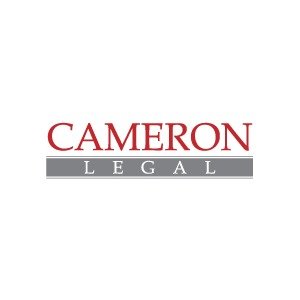Best Criminal Litigation Lawyers in Epping
Share your needs with us, get contacted by law firms.
Free. Takes 2 min.
List of the best lawyers in Epping, Australia
About Criminal Litigation Law in Epping, Australia
Criminal Litigation law in Epping, Australia focuses on the process of taking a criminal case through court. The law involves several steps, from the initial investigation of a crime, through to prosecution, trial, and post-trial procedures such as sentencing and appeals. It falls under the jurisdiction of the state of Victoria, and hence, the legal principles and legislation outlined in the Crimes Act 1958 (Vic), and various other acts and statutes, apply.
Why You May Need a Lawyer
Being involved in a criminal litigation process can be daunting and stressful. A lawyer can provide valuable assistance in defending your case, ensuring your rights are protected and offering advice on potentially complex legal matters. You may need a lawyer if you have been charged with a crime, if you are under investigation or if you need to appeal a criminal conviction or sentence. Lawyers can also provide advice on potential defenses, navigate through the court process and act as a representative on your behalf.
Local Laws Overview
Key aspects of local laws related to Criminal Litigation in Epping and Victoria include the Criminal Procedure Act 2009, and the Evidence Act 2008. The laws cover a range of criminal offenses, each carrying different penalties including potential imprisonment terms and fines. These laws maintain a high level of respect for the rights of accused persons, including the presumption of innocence and the right to a fair trial. Furthermore, victim rights are also prioritized, and careful procedures are put into place for vulnerable witnesses and victims.
Frequently Asked Questions
What is the process of a criminal trial in Epping, Australia?
Criminal trials in Epping follow the same format as the rest of Victoria. The accused is presented before a magistrate or judge and is required to plead guilty or not guilty. If not guilty, a trial date is set. The prosecution will present their case first, followed by the defense. The jury will then deliberate and return a verdict. If the defendant is found guilty, a date will be set for sentencing.
What is the role of a lawyer in a criminal litigation?
The lawyer’s role in a criminal litigation is to represent their client in court proceedings, provide legal advice, prepare and present the defense or prosecution case, cross-examine witnesses, negotiate with prosecution to have charges reduced, and assist in appealing if necessary.
What are my rights if I am accused?
As an accused, you have several rights under the Victorian Charter of Human Rights and Responsibilities. These include the right to be presumed innocent until proven guilty, the right to a fair trial, and the right to competent legal representation.
Where can I get legal aid?
Vic Legal Aid is a government-funded agency providing free legal advice and representation in some cases to people who are unable to afford a lawyer in Victoria, including Epping.
What happens after a court’s decision?
After the court's decision, if the accused is found guilty, sentencing will take place which can include imprisonment, fines, or community service, among others. In some cases, the accused may decide to appeal the decision within a set timeframe.
Additional Resources
The Victoria Legal Aid, Law Institute of Victoria, and The Federation of Community Legal Centres Victoria are key resources for those seeking local legal advice and assistance. You may also want to refer to the Victorian State Government website for up-to-date legislation and legal updates related to criminal law within the state of Victoria.
Next Steps
If you're in need of legal assistance in Criminal Litigation, firstly, identify a trusted and experienced lawyer who specializes in criminal law. You can do this through local directories, recommendations, or through legal aid services if you're eligible. Once you have sought legal representation, ensure all facts and details pertaining to your case are shared with them to assist in building a strong defense or prosecution strategy. Remember to stay informed and involved in your case, and seek clarification on any aspects you're unsure about during the process.
Lawzana helps you find the best lawyers and law firms in Epping through a curated and pre-screened list of qualified legal professionals. Our platform offers rankings and detailed profiles of attorneys and law firms, allowing you to compare based on practice areas, including Criminal Litigation, experience, and client feedback.
Each profile includes a description of the firm's areas of practice, client reviews, team members and partners, year of establishment, spoken languages, office locations, contact information, social media presence, and any published articles or resources. Most firms on our platform speak English and are experienced in both local and international legal matters.
Get a quote from top-rated law firms in Epping, Australia — quickly, securely, and without unnecessary hassle.
Disclaimer:
The information provided on this page is for general informational purposes only and does not constitute legal advice. While we strive to ensure the accuracy and relevance of the content, legal information may change over time, and interpretations of the law can vary. You should always consult with a qualified legal professional for advice specific to your situation.
We disclaim all liability for actions taken or not taken based on the content of this page. If you believe any information is incorrect or outdated, please contact us, and we will review and update it where appropriate.








